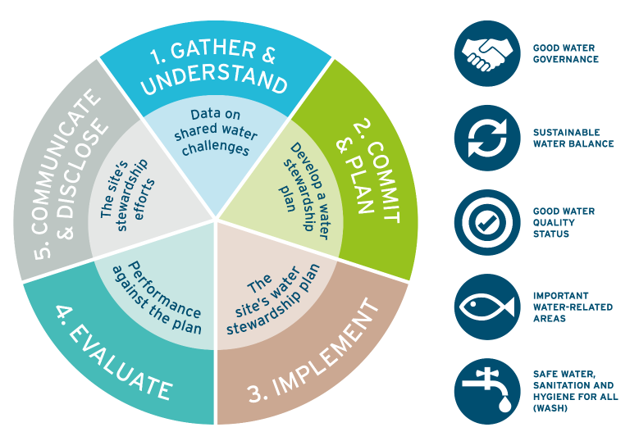Australians belong to the land of drought and flooding rains and are no strangers to the profound impact they have on our way of life and ability to operate a sustainable, resilient enterprise.
As a country, we have a responsibility to look after and conserve our resources. Stewardship is about taking care of something that is not owned, for the benefit of current and future generations. In particular, Water Stewardship is about the socially and culturally equitable use of water which is environmentally sustainable and economically beneficial.
The Alliance for Water Stewardship can help with this. It is a member organisation which provides a framework for the equitable and responsible use of water resources. This is achieved through a stakeholder inclusive process that looks at both site and catchment-based actions.

The framework includes
- understanding water use,
- developing a management plan,
- implementing the plan
- evaluating its performance; and
- transparent communication on progress.
The AWS Standard provides the details on how to achieve this. Once the management framework is in place, an organisation has the option for it to be third party certified which then allows for credible, independently verifiable claims relating to their water stewardship activity. Costs vary depending on the size and complexity of the organisation, however the AWS standard is freely available and is a solid start to reviewing an organisation’s water management and water efficiency.
Examples of organisations that are AWS certified include Nestle, Better Cotton Initiative, Environment Victoria, Danone, Ecolab, Google, Inghams, Mars, Sunfruit, Renmark Irrigation Trust and many more. More information can be found at the Alliance for Water Stewardship website. An account of how South Australia’s Renmark Irrigation Trust has benefited from water stewardship can be found by viewing this webinar.
As credentialed Water Stewardship Specialists; Nicole Price, Jane Gaffel and Penny Prasad have the expertise to help with this process. For advice, contact The Ecoefficiency Group – info@ecoefficiencygroup.com.au.

